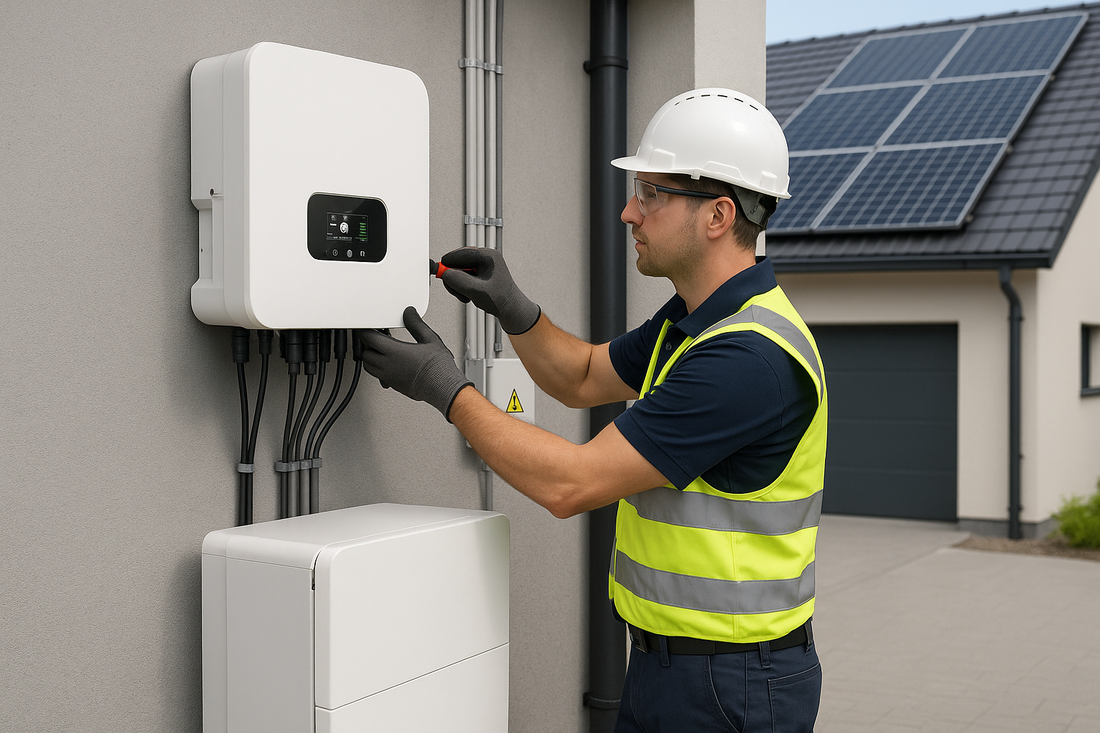
installing hybrid wechseltichter at home
Sabine FischerShare
In recent years, the demand for renewable energy solutions has skyrocketed. As homeowners look for efficient and sustainable ways to power their homes, hybrid wechseltichter, or hybrid inverters, have become increasingly popular. These devices allow for the seamless integration of solar power with traditional electrical systems, providing both reliability and efficiency.
What is a Hybrid Wechseltichter?
A hybrid wechseltichter is a device that combines the functions of a solar inverter and a battery inverter. This means it can convert the direct current (DC) from your solar panels into alternating current (AC) for home use, while also managing the charging and discharging of a battery storage system. This dual functionality makes it an ideal choice for those looking to maximize their solar energy usage and reduce reliance on the grid.
Benefits of Hybrid Inverters
- Energy Independence: With a hybrid system, you can store excess solar energy for use when the sun isn't shining, reducing your dependence on the grid.
- Cost Savings: By utilizing stored solar power during peak electricity rates, you can significantly reduce your energy bills.
- Backup Power: During power outages, a hybrid inverter can provide backup power to essential appliances, ensuring your home remains functional.
- Environmental Impact: By leveraging more solar energy, you decrease your carbon footprint, contributing to a greener planet.
Preparing for Installation
Before you begin the installation process, it’s crucial to plan and prepare adequately.
Here are some steps to consider:
Assess Your Energy Needs
Evaluate your household's energy consumption to determine the size of the hybrid system you'll need. Consider factors such as:
- Daily electricity usage
- Peak usage times
- Available roof space for solar panels
Choose the Right Components
Selecting the appropriate hybrid wechseltichter and solar panels is critical. Look for:
- Compatibility: Ensure the inverter is compatible with your solar panels and battery storage.
- Efficiency Ratings: Higher efficiency inverters convert more DC to AC power, maximizing your energy use.
- Warranty: A good warranty will protect your investment and provide peace of mind.
Installation Process
Installing a hybrid wechseltichter involves several key steps. While some homeowners may opt for a DIY approach, hiring a professional installer is recommended to ensure safety and compliance with local regulations.

Step 1: Mount the Solar Panels
The first step is installing the solar panels on your roof. This involves:
- Selecting the optimal locati0n for maximum sun exposure
- Securing the panels with mounting brackets
- Connecting the panels to the inverter
Step 2: Install the Hybrid Inverter
The hybrid wechseltichter should be installed in a locati0n that is easily accessible for maintenance. The installation includes:
- Mounting the inverter on a wall or other stable surface
- Connecting the inverter to the solar panels and the electrical system
- Configuring the settings for optimal performance
Step 3: Integrate Battery Storage
If you're incorporating battery storage, this step involves:
- Installing the battery bank in a safe, ventilated area
- Connecting the batteries to the hybrid inverter
- Configuring the charging and discharging settings
Step 4: System Testing and Activation
Once all components are installed, the system should be thoroughly tested to ensure everything is functioning correctly. This includes:
- Checking all electrical connections
- Verifying inverter settings
- Testing the system under different load conditions
Maintenance and Troubleshooting
Regular maintenance is essential to keep your hybrid system running smoothly. Here are some tips:
- Regular Inspections: Check the solar panels and inverter for any signs of damage or wear.
- Cleaning: Keep solar panels clean to ensure maximum efficiency.
- Software Updates: Ensure the inverter firmware is up-to-date for optimal performance.
Common Issues and Solutions
- Reduced Efficiency: If you notice a drop in system efficiency, check for obstructions on the panels or issues with the inverter settings.
- Battery Problems: Ensure batteries are properly connected and check for signs of wear or damage.
- Inverter Errors: Consult the user manual for error codes and solutions, or contact a professional for assistance.

Conclusion
Installing a hybrid wechseltichter at home is a smart investment in your energy future. Not only does it offer significant cost savings, but it also enhances your energy independence and contributes to environmental sustainability. By following proper installation and maintenance practices, you can ensure your system operates efficiently for years to come.
Whether you're looking to reduce your carbon footprint or simply cut down on energy costs, a hybrid inverter system is a versatile and effective solution. Consider consulting with a professional to tailor the installation to your specific needs and maximize the benefits of your renewable energy system.

